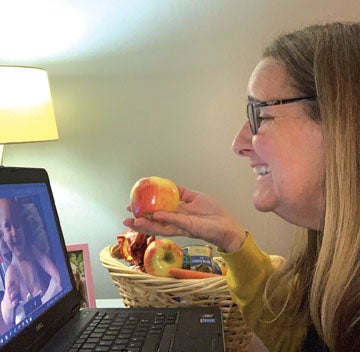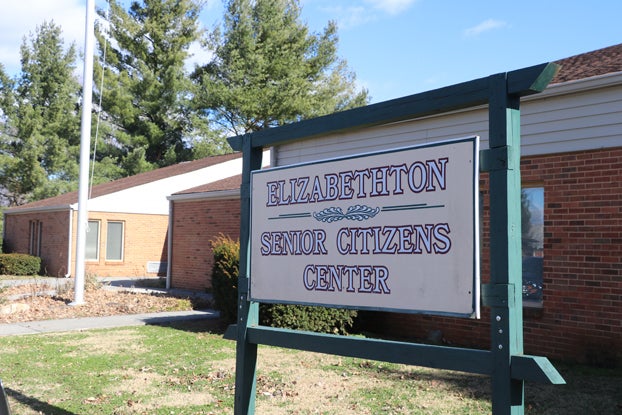ETSU Positive Eating Program pioneers new way to help children via telehealth
Published 1:34 pm Tuesday, July 28, 2020
1 of 1
|
Getting your Trinity Audio player ready...
|
CONTRIBUTED BY ETSU
JOHNSON CITY – As the health care community began transitioning to telehealth services for many types of appointments during the COVID-19 crisis, Dr. Teresa Boggs was uncertain how well telehealth would work for the Positive Eating Program at East Tennessee State University.
ETSU’s Positive Eating Program is designed for children with behavioral and sensory-based feeding challenges. It is housed at The Language Center at Nave, located in Elizabethton and managed by ETSU’s Department of Audiology and Speech-Language Pathology.
Prior to COVID-19, parents or guardians brought their children (typically ages 1-7) to the clinic setting, where supervised graduate students in speech-language pathology (SLP) work with the kids to increase their food awareness and decrease anxiety to new food textures and types. They also coach parents on how to help cultivate feeding and mealtime behaviors.
For the past four months, these appointments have been delivered via telehealth, using electronic audio and video communication to provide remote services.
“At first, when we were forced to transition to telehealth appointments due to COVID-19, we thought it would be very strange working with our kids in this type of situation,” said Boggs, director of SLP clinical services at ETSU. “I think one of the most surprising things for us has been how well telehealth has worked for most of the children we see.”
Thanks to telehealth, Boggs and her colleague Lindsay Greer, assistant director of SLP clinical services, got a rare glimpse into the lives of the homes and kitchens of the children and families they served.
“One of the things we’ve done at the Positive Eating Program is to create environments in our clinic that are home-like so that when you walk into one of our therapy spaces, it’s almost like walking into a little living room,” Boggs said. “But nothing looks more like home than home. Through telehealth, we’re able to see them in their actual kitchen, in their high chair, using their utensils and toys. It has given us important insights on their habits and environment that we can use to help shape positive feeding interventions.”
Another benefit of telehealth for the Positive Eating Program is that it allows Boggs and Greer to continue therapy without worrying about wearing masks or social distancing.
“With this kind of therapy, you need to get face to face, and eating is involved,” Boggs said. “This is very difficult when we’re dealing with something like coronavirus, so telehealth allows the kids to see my face and me to see theirs.”
The remote appointments also make it possible for more family members to attend the therapy sessions, leading to additional insight and coaching opportunities.
While telehealth is not the best solution for all children and types of appointments, Boggs says it will remain a useful tool for treating children with behavioral and sensory-based feeding challenges – even when the threat of COVID-19 has passed.
“It is a lot of work, but it offers a lot of possibilities, too,” Boggs said.
Pediatric feeding disorders affect more than 2.3 million children under age 5, according to Feeding Matters, an organization established in 2006 to provide information on children with feeding disorders.
Not all of these children and families have easy access to a program like ETSU’s Positive Eating Program. In a recent survey of SLPs conducted by ETSU graduate student Ellen Monroe, 53% of the respondents indicated a lack of community-based resources for children with feeding disorders in their community.
“We know that children with feeding disorders experience nutritional deficits, miss more days of school, and may additionally have weakened immune systems for fighting illness,” Boggs said. “Telehealth is a way to get these important services to families who do not live near programs like ours.”
The Positive Eating Program is accepting new patients (all pediatric populations) for consultations. To learn more, call (423) 439-4355 or email boggs@etsu.edu.




